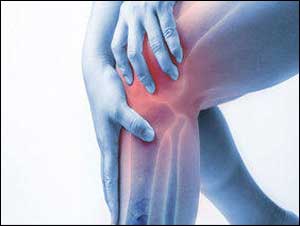- Home
- Editorial
- News
- Practice Guidelines
- Anesthesiology Guidelines
- Cancer Guidelines
- Cardiac Sciences Guidelines
- Critical Care Guidelines
- Dentistry Guidelines
- Dermatology Guidelines
- Diabetes and Endo Guidelines
- Diagnostics Guidelines
- ENT Guidelines
- Featured Practice Guidelines
- Gastroenterology Guidelines
- Geriatrics Guidelines
- Medicine Guidelines
- Nephrology Guidelines
- Neurosciences Guidelines
- Obs and Gynae Guidelines
- Ophthalmology Guidelines
- Orthopaedics Guidelines
- Paediatrics Guidelines
- Psychiatry Guidelines
- Pulmonology Guidelines
- Radiology Guidelines
- Surgery Guidelines
- Urology Guidelines
Partial knee replacement more cost-effective than TKR for knee osteoarthritis

Oxford, UK: Partial knee replacement (PKR) should be considered the first choice for patients with late-stage isolated medial compartment osteoarthritis -- is the key takeaway from a study by Oxford researchers published in the journal The Lancet.
This is based on the finding that PKR had lower costs and better cost-effectiveness during the 5-year study period. Whilst both total knee replacement (TKR) and PKR were found to be equally effective, offered similar clinical outcomes and resulted in a similar incidence of complications and re-operations.
Knee replacement is an effective, common procedure for the patients with osteoarthritis of the knee. There are two main surgical options for late-stage medial compartment osteoarthritis of the knee -- total knee replacement or partial knee replacement. The best option for the treatment remains uncertain due to the lack of evidence to inform the cost-effectiveness and clinical effectiveness of either management approach.
In this multicenter, pragmatic randomized controlled trial, the researchers assessed 62 patients for their eligibility, of whom 431 (45%) patients were excluded (121 [13%] patients did not meet the inclusion criteria and 310 [32%] patients declined to participate) and 528 (55%) patients were randomly assigned to groups. This was done across 27 UK sites from Jan 18, 2010, and Sept 30, 2013. The eligible patients were randomly assigned in the ratio 1:1 to receive PKR or TKR by the surgeons who were either expert in and willing to perform both surgeries or by a surgeon with particular expertise in the allocated procedure.
The primary endpoint was the Oxford Knee Score (OKS) 5 years after randomisation in all patients assigned to groups.
Also Read: Menopausal hormone therapy lowers risk of knee osteoarthritis
Key findings of the study include:
- 94% of participants responded to the follow-up survey 5 years after their operation.
- At the 5-year follow-up, no difference was found in OKS between groups.
- PKR was more effective (0·240 additional quality-adjusted life-years) and less expensive (−£910) than TKR during the 5 years of follow-up.
Also Read: Patients with radiographic knee osteoarthritis at increased death risk
"This finding was a result of slightly better outcomes, lower costs of surgery and lower follow-up health-care costs with PKR than TKR," wrote the authors.
"We suggest that PKR should be considered the first choice for patients with late-stage isolated medial compartment osteoarthritis," concluded the authors.
To read the complete study follow the link: https://doi.org/10.1016/S0140-6736(19)31281-4

Disclaimer: This site is primarily intended for healthcare professionals. Any content/information on this website does not replace the advice of medical and/or health professionals and should not be construed as medical/diagnostic advice/endorsement or prescription. Use of this site is subject to our terms of use, privacy policy, advertisement policy. © 2020 Minerva Medical Treatment Pvt Ltd